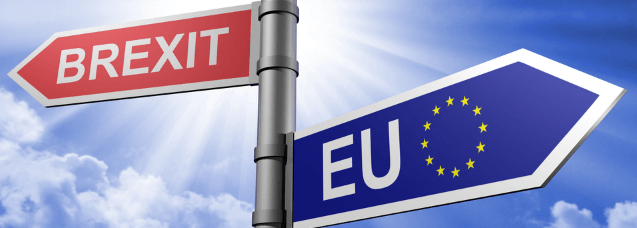Brexit and the EHIC Card

In June 2016, the decision to leave the EU (known as Brexit) marked the beginning of the process during which the UK will eventually part ways with the European Union. Although some people believe that the referendum has no real meaning until the UK triggers Article 50 (which may possibly happen in March 2017), the vote to leave (which was won by 52% to 48%) sent a shockwave not only around the British Isles but also around the world in general. Although the separation process is not yet officially underway, people are already wondering about the effect the split may have on the current healthcare arrangements which exist for British citizens who travel across Europe and who are currently entitled to receive medical treatment in EEA member states for free or at a reduced cost through the EHIC card. With Brexit on the horizon, British travellers are now wondering whether they will be allowed to use the EHIC in the future to access essential healthcare when abroad.
What is the EHIC?
The EHIC or European Health Insurance Card enables citizens from any of the 32 member countries to receive identical medical care as the citizens of the country in which they are staying should they require treatment. This means, for example, that if you are a British citizen travelling to Spain on holiday or to France on a business trip and suddenly require urgent care, a hospital in that country can supply the same services that would be provided to a Spanish or French national at the same cost. In some EEA countries, medical services are provided free of charge, but in others a small fee is payable. The 28 EU countries are all participants in the EHIC scheme as well as the four EFTA (European Free Trade Association) nations – Liechtenstein, Iceland, Switzerland and Norway.
What Will Happen to the EHIC After Brexit?
 Even though the UK has voted to leave the EU, at the present time it is still a member state and therefore British citizens should be able to continue enjoying the medical benefits and healthcare that they have been entitled to since the EHIC was introduced in 2004. This is possible because the final terms of the country’s withdrawal from the EU has not yet been ratified and agreed upon, and therefore currently all programs that are part of the single market remain in effect. At the present time, all UK nationals can still receive the same level and quality of medical treatment as local citizens from public healthcare facilities in Switzerland and the EEA member countries should they become ill while travelling within their boundaries. As long as the EHIC holder is not solely travelling to the country in order to receive medical care, their healthcare needs will be provided for at a low price or even for free. Many British citizens are worried, however, that when Brexit becomes official, they will lose the right to use the EHIC in EU member states as Britain will no longer be a part of the European Union.
Even though the UK has voted to leave the EU, at the present time it is still a member state and therefore British citizens should be able to continue enjoying the medical benefits and healthcare that they have been entitled to since the EHIC was introduced in 2004. This is possible because the final terms of the country’s withdrawal from the EU has not yet been ratified and agreed upon, and therefore currently all programs that are part of the single market remain in effect. At the present time, all UK nationals can still receive the same level and quality of medical treatment as local citizens from public healthcare facilities in Switzerland and the EEA member countries should they become ill while travelling within their boundaries. As long as the EHIC holder is not solely travelling to the country in order to receive medical care, their healthcare needs will be provided for at a low price or even for free. Many British citizens are worried, however, that when Brexit becomes official, they will lose the right to use the EHIC in EU member states as Britain will no longer be a part of the European Union.
The EHIC’s Future
Understandably, British citizens who enjoy the benefits of the EHIC when travelling in Europe have concerns as to what may happen in the future should they need to avail themselves of emergency medical treatment when staying in an EEA member state. There are several possibilities as to what may happen with regard to this. It has been proposed that a deal may be negotiated with the individual member states of the EU, although this is likely to be a long and drawn out process. Another possibility is that the UK will keep the EHIC but it will only be applicable if the holder travels to Liechtenstein, Norway, Iceland or Switzerland, since these countries are not EU member states. There is one more solution, which would be for the leave vote to be disregarded by the UK, with a parliamentary vote being required to determine whether or not Article 50 should be triggered, however experts say this is unlikely to happen. There is no need for immediate concern for UK citizens, however, as it is possible that the entire separation process could take up to a decade to become official and healthcare experts may yet be able to lobby the case for EHIC to be excluded from the withdrawal.
